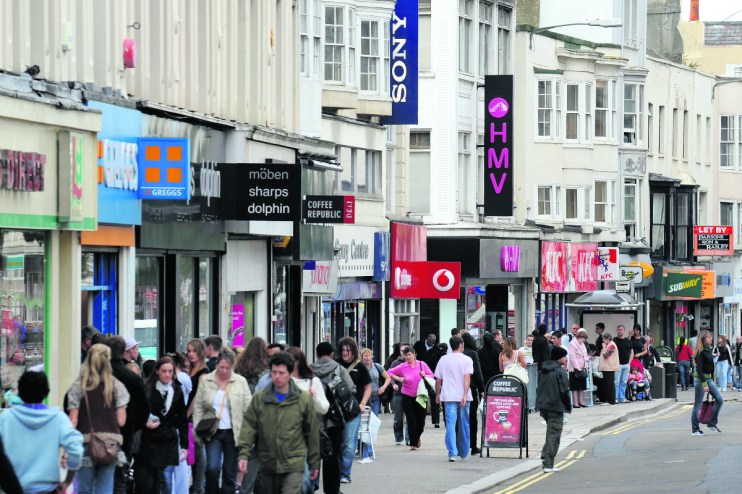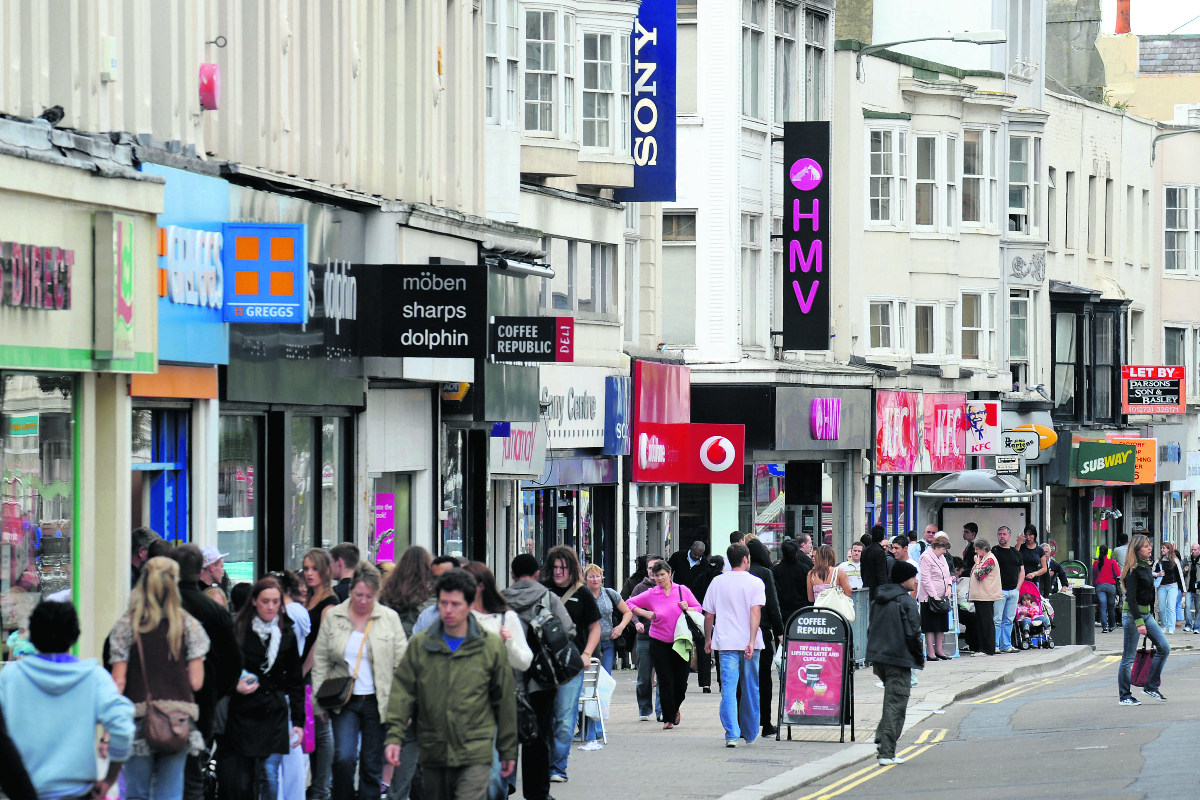Tuesday 14 October 2025 12:01 am
| Updated:
Monday 13 October 2025 3:29 pm
Share
Facebook Share on Facebook
X Share on Twitter
LinkedIn Share on LinkedIn
WhatsApp Share on WhatsApp
Email Share on Email
 Retail sales slowed in September
Retail sales slowed in September
Retail spending slowed in September, as a tax raising Budget and higher household inflation expectations forced Brits to tighten their belts before the all-important ‘Golden Quarter’.
Total retail sales in September increased by 2.3 per cent year on year, down from the 3.1 per cent that the sector notched up in August and the 2.5 per cent growth enjoyed in July.
Non-food sales – including in categories like fashion and household appliances – slowed particularly sharply, rising by just 0.7 per cent on last September, compared with 1.8 per cent growth the previous month.
However, grocery sales rose by 4.3 per cent year on year, in a sign that shoppers are not cutting spending in the face of a fresh bout of inflation that has seen annual price rises hit five per cent in recent months.
Helen Dickinson, the chief executive of the British Retail Consortium, attributed the slowdown to a combination of “rising inflation and a potentially taxing Budget”
“Milder weather meant shoppers delayed refreshing autumn and winter wardrobes and growth in food sales was largely inflationary rather than volume growth,” she said. “Meanwhile, electrical sales were buzzing thanks to the release of the new iPhone and Apple Watch.”
Retail bosses fear dwindling consumer confidence
Next month, the Chancellor is expected to unveil one of the largest tax raising Budgets in recent history, as she attempts to plug a roughly £30bn shortfall in the public finances and stay within her self-imposed fiscal rules.
While the Treasury has suggested it will not rehash last year’s approach to tax hikes, which relied on squeezing the private sector to fund the majority of its spending pledges, industry chiefs fear households are already tightening their belts before a sharp restriction in fiscal policy.
Dickinson also highlighted persistent food inflation as eating into consumers’ ability to spend on non-essentials. UK households have been found to be building up nest eggs at the fastest rate in the G7 – and have the lowest consumption growth – this year, in a sign many are fearful of the damage more runaway inflation could have on their savings.
During a speech calling for interest rates to be held for longer last week, Bank of England rate-setter Catherine Mann said that consumers were feeling “scarred” by “persistently persistent inflation” and a weak economic outlook. And in a sign people’s parsimony may household inflation expectations are now the highest they have been since the height of the cost-of-living crisis.
Sarah Bradbury, chief executive of the Institute of Grocery Distribution, said: “Grocery volumes continued to be sluggish with household budgets under pressure, following the steady inflation rise since the start of the year. Despite grocery retailers announcing early price reductions to support budget-conscious shoppers, ongoing speculation surrounding Autumn Budget announcements may temper shopper sentiment ahead of the festive period.”
Read more
Shopper confidence falls as Brits expect food inflation to climb
Similarly tagged content:
Sections
Categories
People & Organisations

